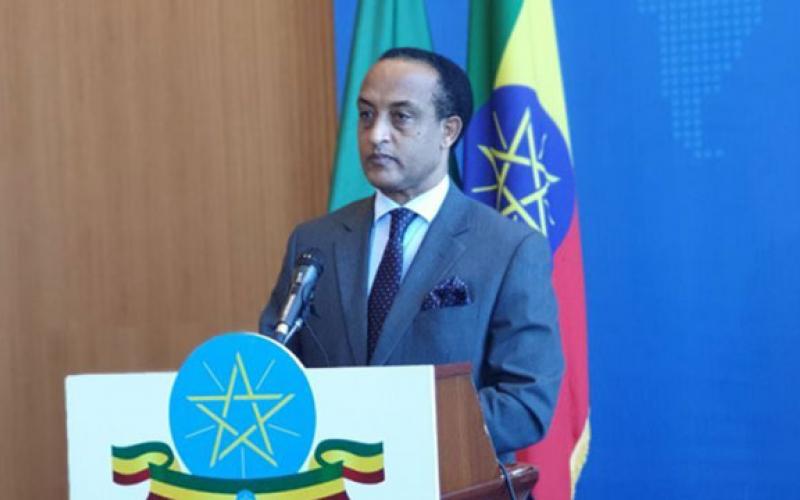
“We know who is behind the Arab League”
The Ministry of Foreign Affairs says it categorically rejects the Arab League’s position on the recent understanding between Ethiopia and Somaliland, calling the League’s statement against the deal a “snub to Africa.”
Meles Alem (Ambassador), spokesperson for the Ministry, bashed the positions of the Arab League and the Egyptian government during a media briefing on January 18, 2024.
“The Arab League’s statement is unacceptable. We know who is behind the Arab League,” he said. “Egypt and the League are two sides of the same coin. The statement is a snub to Africa. Africa can solve its own problems.”
The day before Meles’ briefing, Arab League chief Aboul Gheit said the deal between Ethiopia and Somaliland “constitutes a blatant attack against Arab, African, and international principles.”
He said this as part of an address to the foreign ministers of Arab League member nations, who had gathered for an emergency session.
The controversial Memorandum of Understanding (MoU) signed on January 1, 2024, would see landlocked Ethiopia lease a 20 kilometer stretch on the Somaliland coast, in exchange for recognition of Somaliland as a sovereign state.
Somaliland unilaterally declared independence from Somalia in 1991.
News of the deal sent Mogadishu into an uproar, with the Somali government accusing Ethiopia of violating its sovereignty, while the latter argues the agreement is lawful and necessary for regional development.
“Other countries from distant continents install bases on the Red Sea and Indian Ocean,” said Meles. “But when Ethiopia, a country in the region, tries to access the Red Sea or the Indian Ocean, the issue is suddenly a big deal. What is the logic? Ethiopia’s quest to port access is a matter of justice, peace, and stability.”
The Spokesperson went on to label claims that Ethiopia is causing instability in the region as “a joke.”
“Ethiopia has been paying in blood for the peacekeeping missions in Somalia and Sudan,” said Meles.
Nonetheless, the deal and ensuing tensions have ruffled feathers in Africa and elsewhere. IGAD and the AU have issued statements urging for a de-escalation of tensions between Ethiopia and Somalia, and calling for dialogue.
The AU is further considering the designation of Olusegun Obasanjo to mediate talks between the two. Djibouti President and IGAD Chairperson Ismail Omar Guelleh called for an extraordinary session to discuss the issues surrounding the MoU, as well as the Sudanese war, in Kampala on Thursday.
Ethiopia and the Sudanese military did not heed IGAD’s call for a sit down.
The Somali government, on its part, has issued a statement saying there is “no room for mediation” with Ethiopia until it retracts its deal with Somaliland.
However, the Foreign Affairs Spokesperson says there are no plans to consider a retraction.
“The MoU clarified one thing: that raising the port access issue is no longer a taboo for Ethiopia. That era has gone. Port access is a strategic issue for Ethiopia,” said Meles.




